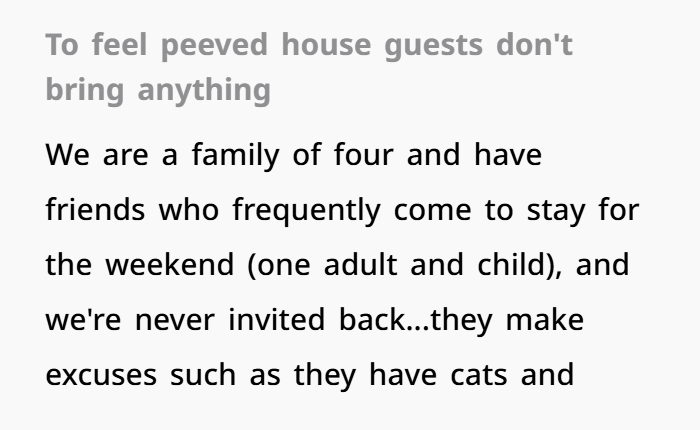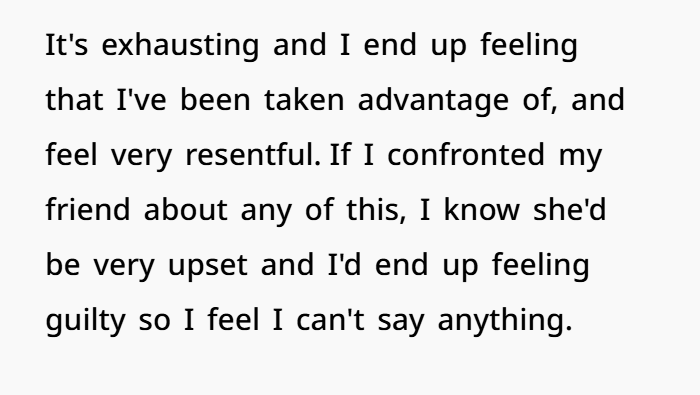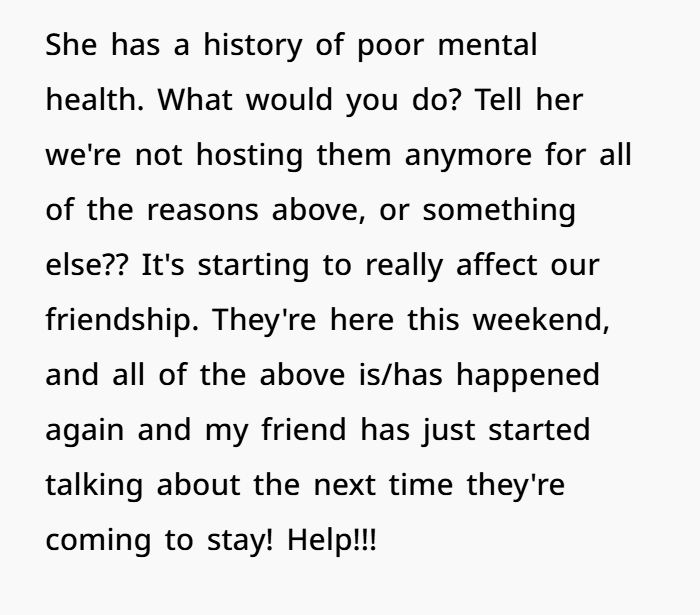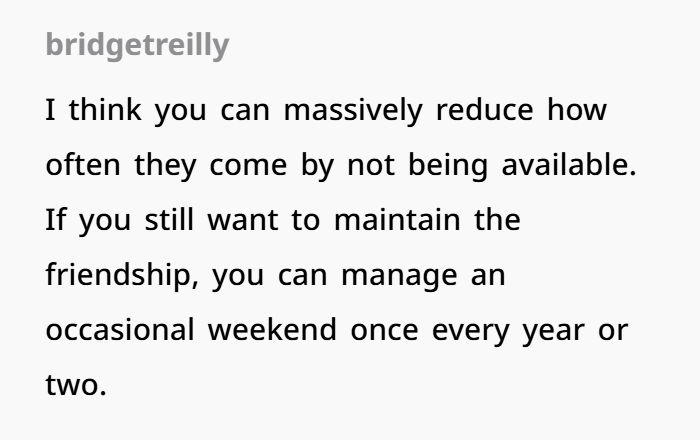Feeling Used: When House Guests Overstay Their Welcome Without Contributing
Hosting friends can be a joy, but when guests repeatedly visit without reciprocating or contributing, it can strain even the strongest friendships. One London-based family has experienced this firsthand, as friends frequently stay over, bringing nothing and offering no help, leading to feelings of being taken advantage of. This situation raises important questions about guest etiquette and the boundaries hosts should set to maintain healthy relationships.
Hosting close friends is a great experience as long as they don’t overstay their welcome or demand too many things from the host

The poster shared that her single-parent friend kept coming to stay over with her kid just so she could visit London and never reciprocated an invite to them









It’s entirely valid to feel frustrated when hosting guests who consistently fail to contribute or reciprocate hospitality. Hosting involves significant effort, time, and expense, and it’s reasonable to expect some acknowledgment or assistance from your guests.
Understanding the Etiquette
Traditionally, guests are expected to show appreciation for their host’s hospitality. This can be through bringing a small gift, such as wine, flowers, or specialty food items, or by offering to help with meals and cleanup. Such gestures are not just polite—they acknowledge the host’s efforts and help maintain a balanced relationship. Emily Post+1Reddit+1
Setting Boundaries
Given the recurring nature of these visits and the lack of contribution from your friend, it’s important to establish boundaries to protect your well-being and the integrity of your friendship. Here are some steps you might consider:

- Communicate Openly: Have a candid conversation with your friend about how you feel. Express that while you value her company, the current arrangement leaves you feeling overwhelmed and unappreciated.
- Set Clear Expectations: If you choose to continue hosting, outline what you expect from your guests. This could include bringing certain items, contributing to meals, or helping with chores. Being specific can prevent misunderstandings.
- Limit the Frequency and Duration of Visits: Consider setting limits on how often and how long guests can stay. This can help prevent burnout and ensure that hosting remains a positive experience for you.
- Offer Alternatives: If hosting becomes too burdensome, suggest alternative arrangements, such as meeting at a neutral location or recommending nearby accommodations. This allows you to maintain the relationship without the stress of hosting.

Prioritizing Your Well-being
It’s essential to prioritize your comfort and mental health. If hosting these guests consistently leaves you feeling resentful, it may be time to reevaluate the arrangement. Friendships should be mutually supportive, and it’s okay to step back from situations that feel one-sided.
Remember, setting boundaries is not about being unkind—it’s about taking care of yourself and fostering healthy, respectful relationships.
Folks urged the woman to talk to her friend, and many were shocked that the behavior had gone on for a decade







